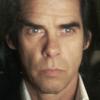Marvelous Middle-Earth
Movie Pick: The Hobbit: The Desolation of Smaug

Martin Freeman
THE HOBBIT: THE DESOLATION OF SMAUG (PG-13) After the tired, lumbering mess that was last year's The Hobbit: An Unexpected Journey, Peter Jackson and his tireless technical crew and gaggle of actors deliver something much punchier and more entertaining with this second installment, The Hobbit: The Desolation of Smaug. It's still no The Lord of the Rings, but Jackson's prodigious kid-like enthusiasm, warmth and humor definitely peer through more here than in the previous entry, although like any rambunctious child bent on keeping you on your toes, it's likewise exhausting. Such are the dues paid watching mega-budgeted thrill-fests like this. Movies of this ilk aren't really about classic storytelling and character development, something the earlier The Lord of the Rings trilogy established masterfully. This Hobbit entry is still bloated, but it's also thematically darker, more inventive, more exciting and a helluva lot more fun than its predecessor. Think Jackson's remake of King Kong more than the original Middle-Earth trilogy, and expectations should remain in check.
After escaping a band of bloodthirsty orcs (are there any other kind?) at the end of An Unexpected Journey, hobbit Bilbo Baggins (Martin Freeman), the crafty wizard Gandalf (Ian McKellen) and a host of amusing yet largely anonymous dwarves venture farther into the realms of magic and the dark forests of Mirkwood. What awaits them (and us) is a wealth of visually splendid sequences involving our gang of heroes testing their mettle against a necromancer, giant spiders and, of course, the awe-inspiring dragon, Smaug (voiced by the deviously smooth-talking Benedict Cumberbatch). Narrative-wise, The Desolation of Smaug goes nowhere, unlike the middle-installment of The Lord of the Rings trilogy, The Two Towers, which deepened the series with new character arcs, thematic plot lines and emotional connections. The Desolation of Smaug is pure spectacle and a vast improvement over the last movie.
But it's still hollow. When The Lord of the Rings movies were released over three years, they felt special. No one had melded classic narrative cinema quite like this, incorporating character depth, thematic richness and hints of visual poetry with the best special effects the movie industry could devise. Peter Jackson, who had first made his name with a series of indie exploitation horror movies, deftly displayed that there was more to him than gore and black humor. He was a mature commercial filmmaker in waiting, and the mythical territory of J.R.R. Tolkien gave him the opportunity to flourish. Sadly, the exhausting child is back in full force. Thank the gods for popcorn!
Keywords
More by Derek Hill
-

Birdman or (The Unexpected Virtue of Ignorance)
Movie Review
-

20,000 Days on Earth
Movie Review
-

St. Vincent
Movie Review









comments